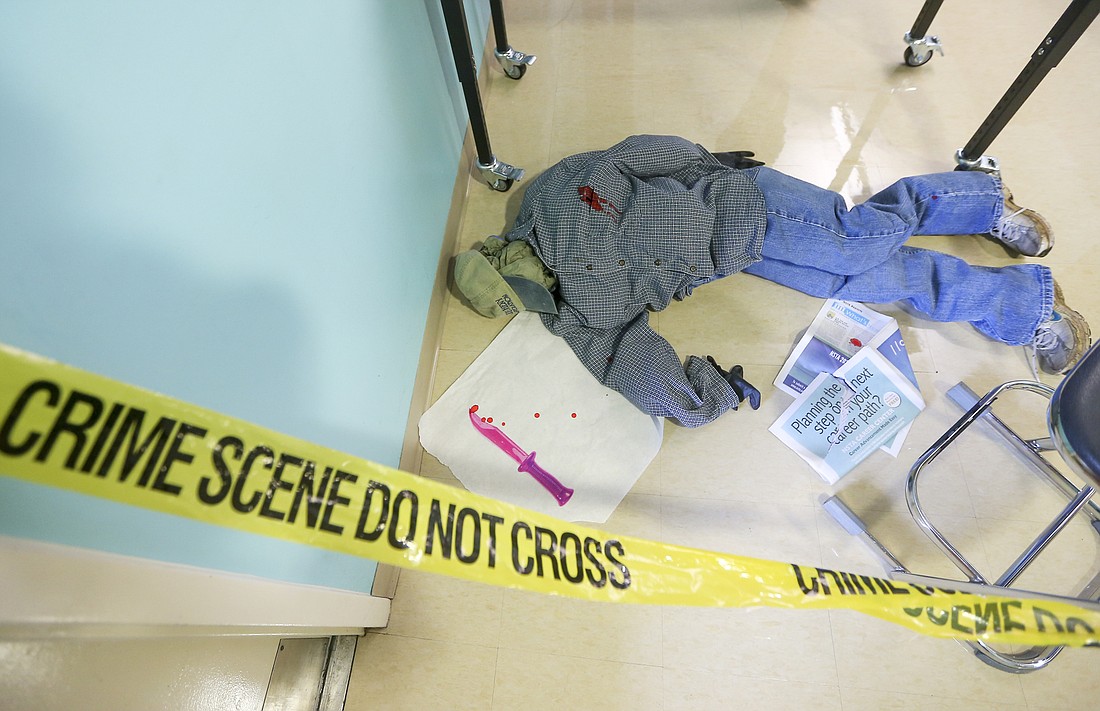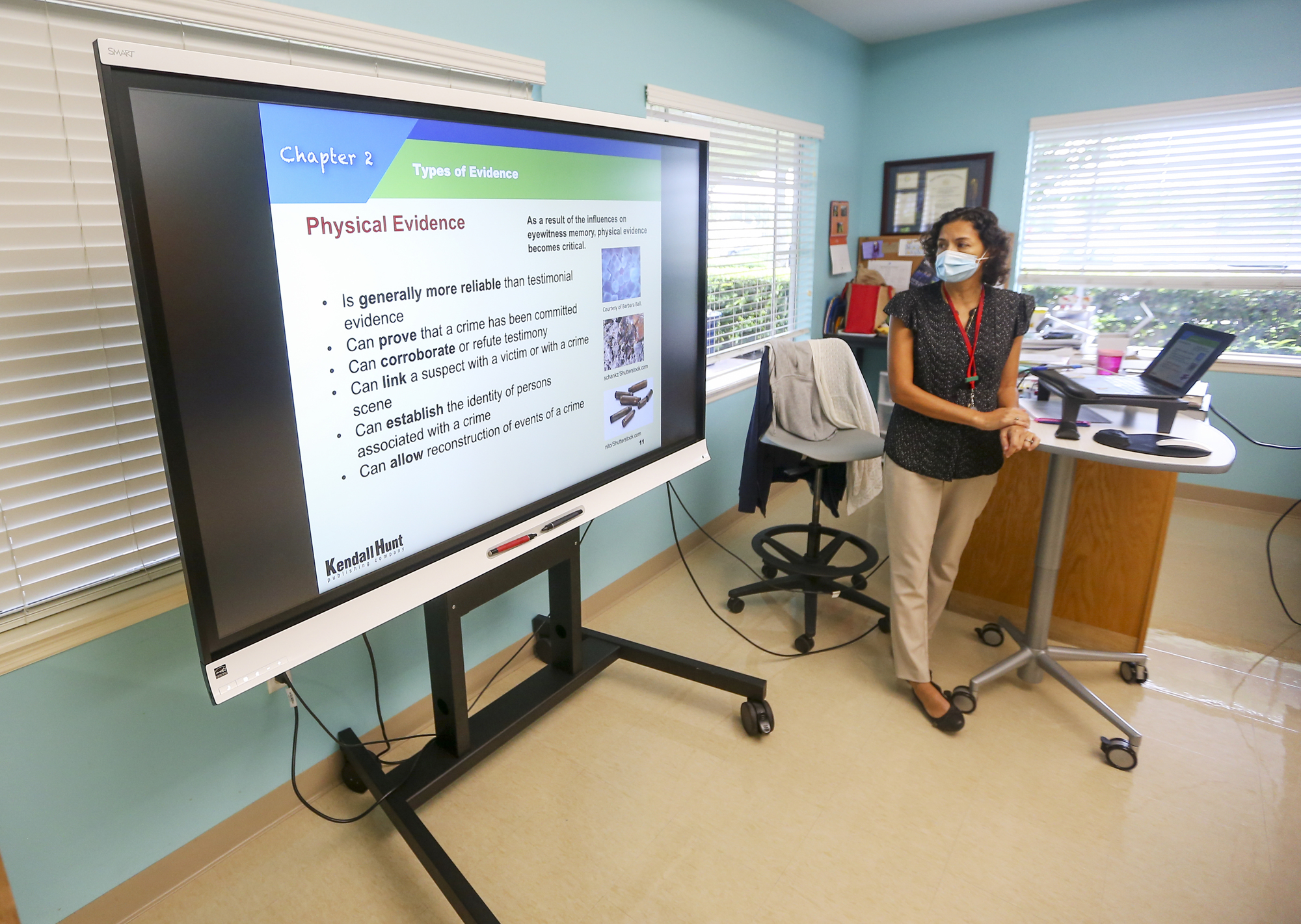- January 28, 2025
-
-
Loading

Loading

They may not have David Caruso’s infamous sunglasses from “CSI: Miami,” but students at Windermere Preparatory School are learning all the same crime-scene skills.
As soon as you step through the science lab doors at Windermere Prep, you’re met by something not normally seen in a classroom — a “dead body.”
On the ground, the body — really stuffed clothes — lies, slain by the murder weapon that sits next to him: a bloody knife. Next to the body, on a classroom table, sits a crime scene investigator’s kit — including latex gloves and an evidence bag among other items.
Although the school is using a mixed model of online and in-person instruction for students, this scene in Marietta Wright’s classroom serves an introduction to a new class — forensic science.
“Right now, it’s just kind of background information about types of evidence, how to process a crime scene and such,” Wright said. “We’re trying to get our basic content knowledge down first — learning how crime scenes are processed and what forensic scientists do. Then, we talk a little bit about using some examples of different types of cases — I mentioned the O.J. Simpson case as one we will be investigating.
“The students will also be doing things like their own mock crime scenes,” she said. “They’ll set up their own, so they’re going to put up their own scenario together throughout the semester.”

Wright has a background in DNA analysis, and before arriving at Windermere Prep in 2018, she hosted CSI camps and utilized mock crime scenes to instruct the students at the college she worked at in Pennsylvania.
This past summer, Wright decided to introduce a forensic class — much to the delight of Windermere Prep students. Her class jumped from 11 to 39 students — all juniors and seniors. One of those students, senior Cadence Phillips, harbors an interest in criminal justice.
“It’s been very interesting to learn about what happens, and the stuff you don’t see behind the scenes,” Phillips said. “You see the stuff on the news or TV shows — that aren’t super accurate about it — but actually learning about what happens and what goes on is very interesting.”
And each 90-minute class is part lecture and part lab.
During the first part of class, Wright presents a slideshow of pertinent information about the process of crime scene investigation, as well as slides that test the observational prowess of students. In the lab portion, Wright teaches how to observe and process a crime scene properly — including collecting evidence and, eventually, learning about blood splatter, which will involve students using red dye with a dropper.
Although some students are online only and some in-person, the students will be able to learn how to work just like a real CSI team.
“Even if we do something here that’s hands-on, these students will be running the experience, then the students online will do the analysis, so we’ll be able to break it into groups,” Wright said. “Because, again, when you’re processing crime scenes, not everyone does one thing. … So we’re going to have them collaborate and do that all together.”
In just a short amount of time, Wright’s students have learned a lot, and just about everything has been a revelation in some way, Phillips said.
“I kind of knew what this class was going to be about, but since it was a new class, I couldn’t really ask anybody, ‘Hey, what did you do?’” Phillips said. “I think coming into this class — even in the first place — was a surprise, because you learn so much in such a short amount of time, but it’s easy to process information.”
The class will continue next spring semester, when students will learn about analysis, interpretation and more.
Wright hopes her students not only learn about this interesting field, but also introduce them to the available career opportunities.
“No matter what you’re interested, you can find something in forensic science,” Wright said. “There are so many different areas that you can do.”